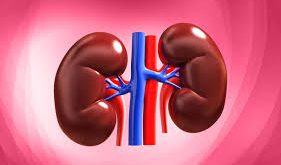Watching your baby in discomfort can be heartbreaking—especially when the cause isn’t immediately clear. One of the most common issues infants face in their early months is constipation. While it’s usually not a serious medical condition, it can cause considerable discomfort, leading to excessive crying, feeding problems, or irregular bowel movements. Understanding what causes constipation, recognizing the early signs, and knowing how to manage or prevent it can make all the difference in keeping your baby comfortable and healthy.
Here’s a comprehensive list of key facts every parent and caregiver should know about constipation in infants:
- Recognizing the Signs –If your baby has recently started grunting, crying, lifting their legs toward the tummy, or seems excessively fussy, these may be signs of constipation. Infants may also pull away the bottom half of their body, tighten the upper half while feeding, or bury their face into the bed while crying. Other symptoms include having bowel movements less than three times a week, passing hard, pellet-like stools, swollen tummies, or stools with traces of blood from excessive straining.
- Why Early Detection Matters –Identifying these symptoms early allows for prompt treatment. This not only eases discomfort but also helps prevent the issue from worsening. While it’s common for babies to get constipated occasionally, ongoing issues do require intervention.
- Diet Changes Are a Common Cause –One of the primary reasons for constipation is a change in diet. Moving from breast milk to infant formula—known for its thicker texture—can be hard for babies to digest. Similarly, introducing solid foods may temporarily lead to constipation. Usually, the baby’s digestive system adjusts within 3 to 4 days, but prolonged symptoms should be discussed with a doctor.
- Dehydration Plays a Major Role –When fluid loss exceeds intake, stools become harder and more difficult to pass. Illnesses like vomiting, diarrhea, or fever can reduce fluid levels, increasing the risk of constipation. Additionally, reduced fluid intake or excessive sweating can contribute to dehydration.
- Underlying Health Conditions Can Be a Factor –Constipation might be linked to certain medical conditions such as spina bifida, intestinal obstructions, celiac disease, or hypothyroidism. In rare cases, conditions like Hirschsprung’s disease, which affects nerve control in the colon, could be the cause. Older babies might also intentionally hold in stool due to fear of pain or being interrupted while playing.
- Signs of More Serious Constipation –Warning signs include fewer than two bowel movements a week, thick, dry, or lumpy stools, and crying or irritability during defecation. In some cases, blood may appear in the stool or nappy due to anal fissures caused by straining.
- Treatment Options Vary by Cause –For mild cases, increasing fluid intake usually helps. Babies on solid foods may benefit from fiber-rich fruits, vegetables, and whole grains. Gentle leg exercises (like bicycle motions) and tummy massages can help stimulate bowel movements. If medications are the cause, the doctor may adjust the dosage or switch the prescription. Persistent constipation may be treated with laxatives, enemas, or glycerin suppositories under medical supervision. Behavioral strategies, such as scheduled potty time or pausing potty training, may help older children.
- Prevention Tips for Parents –Ensure your baby stays hydrated, especially during illness or in hot weather. For babies eating solids, include enough fiber-rich foods to aid digestion. Establishing regular bowel habits may also prevent constipation. Always consult a physician if symptoms persist, especially if accompanied by nausea, anal bleeding, or distress.
Constipation in infants is both common and treatable. Though it may seem alarming, most cases can be managed with simple changes in diet, hydration, and routine. However, persistent or severe constipation may point to an underlying issue and should always be discussed with a paediatrician. By staying informed, attentive, and proactive, parents and caregivers can ease their baby’s discomfort and help support a healthy digestive system from the very start
Dr. Srinivasa Murthy C L, Lead Paediatrics, Consultant – Paediatrics and Neonatology, Aster Women & Children Hospital, Bengaluru
 Newspatrolling.com News cum Content Syndication Portal Online
Newspatrolling.com News cum Content Syndication Portal Online







